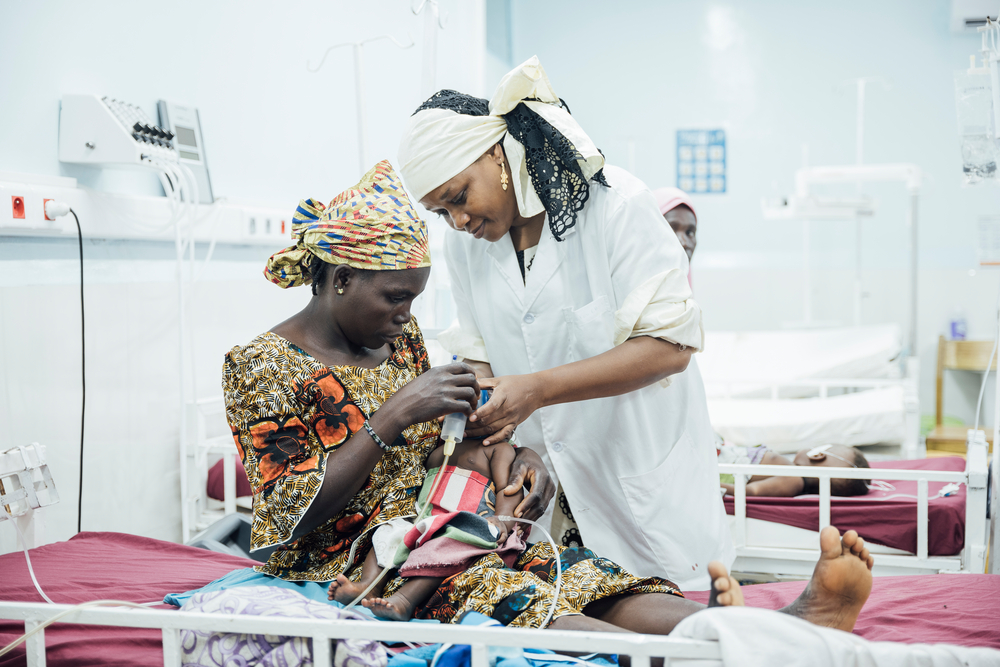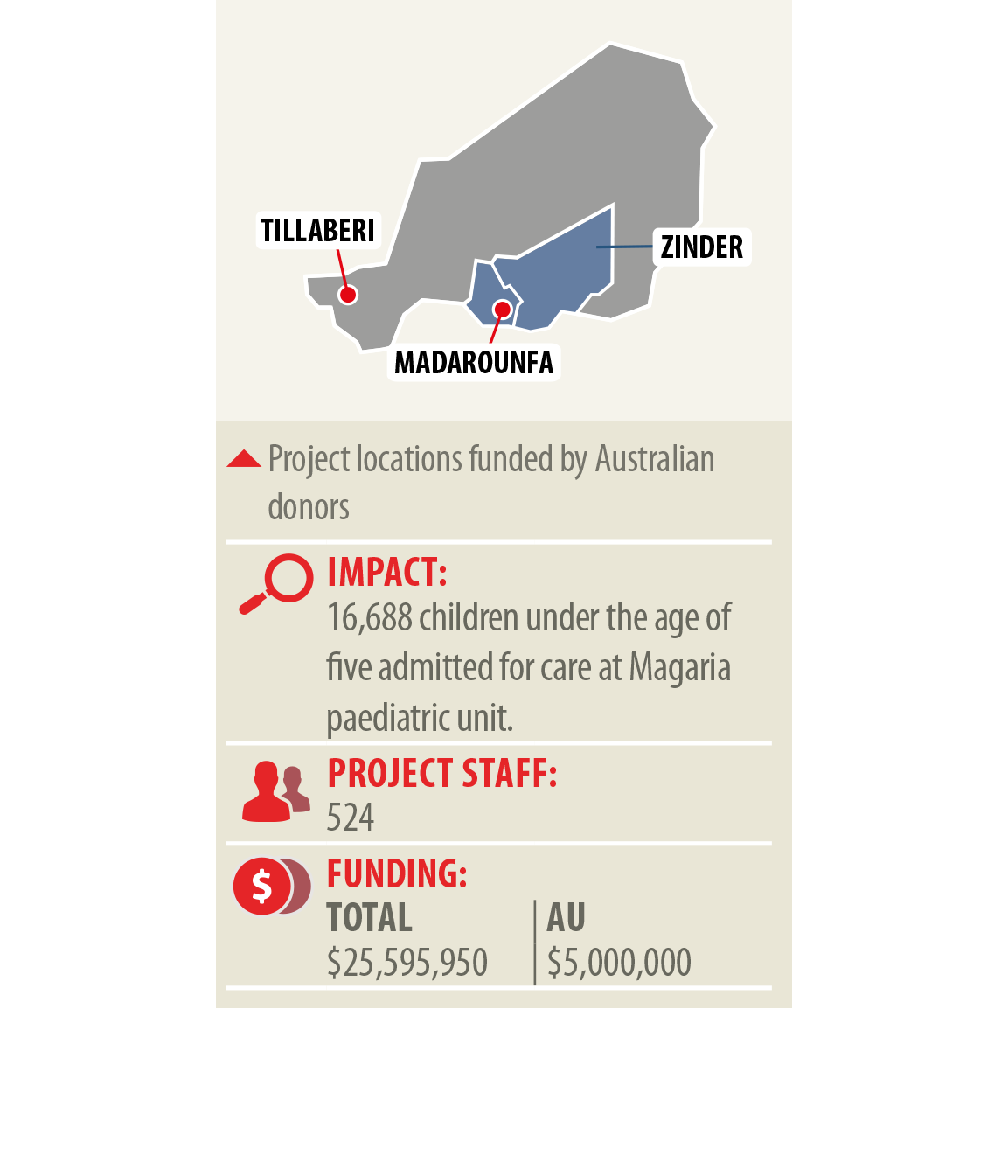
2 minute read
MSF AUSTRALIA | NIGER 2022

MSF ran a range of projects in Niger to address the significant health needs caused by conflict, displacement, food insecurity, epidemics and other factors.
In 2022, our teams carried out mass vaccination campaigns, distributed drinking water and relief items, such as hygiene and cooking kits, constructed shelters and ran mobile clinics for displaced people in Tillabéri region.
In Zinder region, the combination of an early malaria peak and a poor agricultural season led to a significant increase in the number of paediatric patients. To boost inpatient capacity in Magaria, we constructed two observation rooms in Tinkim and Yékoua health centres.
As well as treating patients in our paediatric unit, we continued to develop preventive and community-based approaches to care to reduce the number of patients with complications from malnutrition, for example training community members to provide treatment for simple cases of common illnesses such as malaria, acute respiratory infections and diarrhoea. A total of 173,590 consultations were conducted by MSF-trained community members in 2022.
We also supported the health authorities’ responses to outbreaks of disease in Zinder region, vaccinating 653,420 children against measles and 257,078 against meningitis.
In Madarounfa hospital and in five health areas in Maradi region, we offered medical and nutrition care to children with malnutrition, malaria and other childhood diseases. As a result of our partnership with the health authorities and the World Food Programme, dedicated to treating children with moderate acute malnutrition, the number of hospital admissions for malnutrition was the lowest in four years.
In Madarounfa district, we provided care for children with sickle cell disease, which included vaccinations, antibiotics to prevent and treat infections, pain medications and blood transfusions. To better prevent and manage severe complications of the disease, we introduced treatment with hydroxyurea, a drug listed by the World Health Organization as essential for haemoglobin diseases in children but still difficult to access in Niger.












